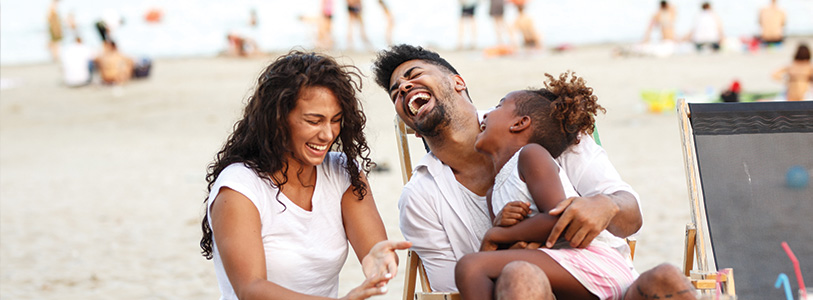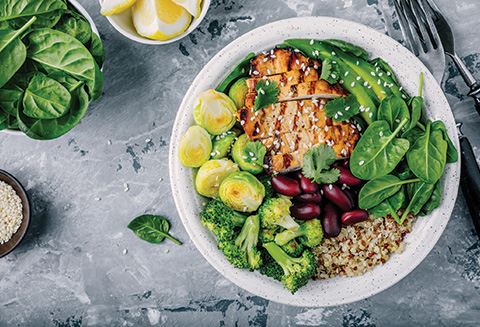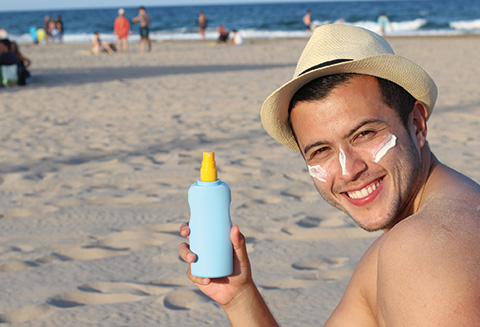10 summertime safety tips you should know

Summer is the best time of year to enjoy the great outdoors. Whether you’re swimming, barbecuing, or hiking wooded trails, some basic safety precautions should be followed to avoid falling ill. Topping the list are hot temperatures that can pose a hazard for even the healthiest of people — affecting the body’s ability to keep cool and possibly leading to a host of complications.
More articles from this issue
“There are three heat-related syndromes,” explains Dr. Carlos Flores, Director of the Emergency Department at NewYork-Presbyterian Lawrence Hospital in Bronxville. “Heat cramps are painful, involuntary muscle spasms that usually occur during heavy exercise in hot environments. Next is heat exhaustion, marked by heavy sweating and a rapid pulse, a result of the body overheating. The most serious is heat stroke, a condition often marked by fever, disorientation, and unconsciousness. It is caused when the body's temperature-regulating mechanism fails. While heat cramps and heat exhaustion can be dangerous, heat stroke can be fatal.”
In addition to the heat, there are other scenarios — from backyard barbecues to public pools — that can place a person at increased risk this season. Dr. Flores offers these tips to enjoy those long summer days in a safe way:
- Slow down when things heat up: When temperatures begin to reach extreme highs, slow down, exercise in moderation, stay in the coolest place available and reduce or eliminate all strenuous activities.
- Drink up: It is especially important during the hot summer months to avoid dehydration by drinking water or sports drinks. Aim for eight 8-oz. glasses of water a day — more if you can. Avoid alcohol and caffeine, which can dehydrate you. Most importantly, do not drink and drive.
- Block the rays: Use a broad-spectrum sunblock with UVA and UVB protection (SPF 30 or greater) when outdoors for prolonged periods of time, even on cloudy days.
- Know what plants mean trouble: Be sure everyone can identify dangerous plants such as poison oak, ivy, and sumac. If someone touches one of these plants, rinse the area right away with soap and running water for at least five minutes.
- Use repellents wisely: Be sure to check the label on insect repellent. Select a product that is safe for the age of the user. Follow the directions for application on the label.
- Take bites seriously: Never underestimate the power of an insect bite or sting. Insect stings may cause serious problems and even death for those with allergies. Go to a hospital right away if you develop hives after a sting, or have dizziness, breathing trouble or swelling around the eyes and mouth.
- Exercise caution with dangerous substances: Lighter fluid, gasoline, torch, and lamp oils can be deadly if swallowed. Watch children closely at all times when these are being used. Use camp stoves, grills, and generators outside, never inside buildings or tents. Always follow manufacturers’ instructions for product usage to avoid burns and other injuries.
- Remember pool precautions: Never leave children unattended when in or near a swimming pool. Inhaling chlorine products can irritate the respiratory system. Homeowners who have swimming pools should store pool chemicals in a safe and secure place, out of children’s reach.
- Practice good food hygiene: Always wash hands and counters before preparing food and clean utensils for cooking and serving. Store, cook, and reheat food at the proper temperatures. Refrigerated foods should not be left out at temperatures above 40° F and do not let food sit out at room temperature for more than two hours. Food poisoning can occur with symptoms that include fever, headache, diarrhea, stomach pains, nausea, and vomiting.
- Keep alcohol out of reach of children: Do not leave products containing alcohol where children can reach them. Alcohol can be dangerous to children, leading to respiratory distress, coma, or even death. Signs that a child may have consumed alcohol include sleepiness, confusion, and vomiting.
Says Dr. Flores, “By following some simple guidelines and taking the right precautions, summer can be an enjoyable time for the whole family.”
To find a doctor at NewYork-Presbyterian Lawrence Hospital, please call 914-787-5000.






